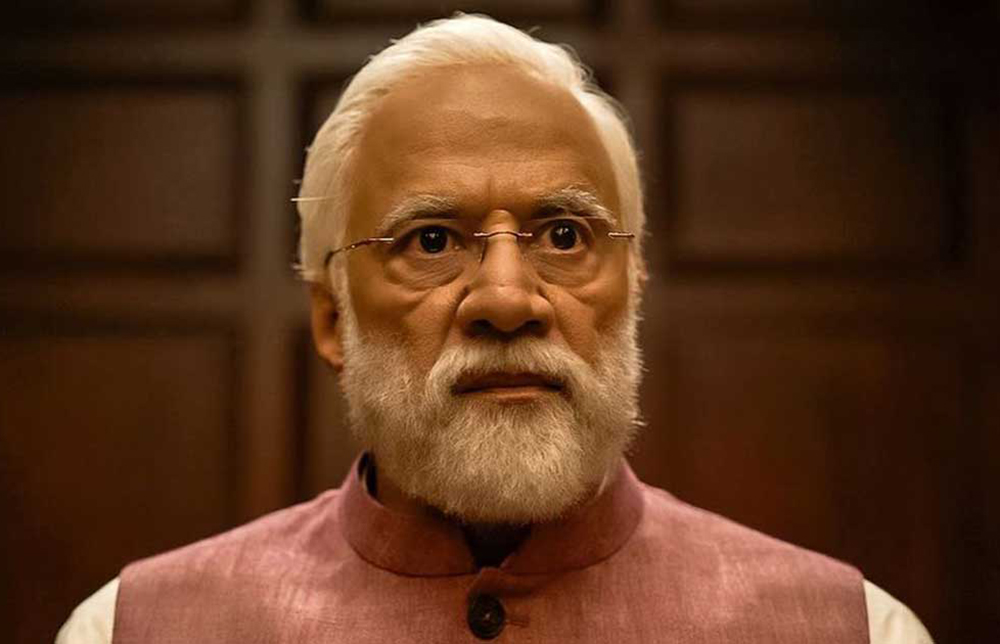Kashmir is home to many stories and events, and many storytellers have used them to convey messages. Another addition to it is the newly released film “Article 370.”
In 2016, Burhan Wani’s encounter triggered more unrest in Kashmir, which is the beginning of the story. The movie’s central protagonist is Zooni Haksar, an intelligence field officer played by Yami Gautam. Despite an encounter being deemed successful by his superior, the individual is transferred to Delhi. As the government progresses, PMO Secretary Rajeshwari Swaminathan (Priyamani) is now solely responsible for eliminating Article 370. Zooni has been appointed to lead the National Investigation Agency (NIA) operation in Kashmir and her team has been put together. The narrative is about the Indian government’s ability to control the region directly through the repeal of Article 370; corruption from local leaders and militants makes it more difficult to maintain peace and unity in the J&K.
Three Writers Bring the Action
The story of Kashmir is being brought to life through the efforts of Aditya Dhar, Arjun Dhawan, and Aditya Suhas Jambhale, who have worked together to split the movie into six chapters. A fictional portrayal of both Burhan Wani’s assassination and the Pulwama attack is offered in the chapters. Along with Zooni’s chances of joining the NIA in Kashmir, the discrepancies in Article 370 clauses and other issues are being discussed.
“Article 370’s” best performance comes from its action-oriented behavior. The director’s ability to manage battle sequences, gunfights, and combat is replicated in this film with the same level of precision, conviction, and visual flair. Unlike other patriotic movies, the trigger is not pulled immediately; there is much verbal juggling before action happens. The commitment of this film to explain itself is somewhat sobering. A narrative is created by summoning presentations, annotating history, and using voiceovers by Ajay Devgn that become weighed down by its analytical obsessions.
Director Aditya Suhas Jambhale has acted intelligently by staying away from extreme and aggressive patriotism. The technical structure of the second half is impressive for its ability to keep you engaged. Considering that the film features many real incidents, it’s hard to understand why he labeled it as ‘fictional.’
Avoiding Aggressive Patriotism in its Depiction
While lengthy (“Article 370” clocks in at 2 hours and 38 minutes), the film remains engaging for the most part. Article 370, which gave special status to Jammu and Kashmir, should be abolished, and this drama exemplifies the need. The movie asserts that the current government’s revocation of the article was justifiable. According to the filmmakers’ depiction, the corruption between corrupt local leaders and militants is the cause of the suffering faced by Kashmiri residents. The plot’s context is established expertly in the suspenseful beginning of the story. Shashwat Sachdev’s score makes him stand out. The climax has a slight decrease in intensity, with a preference for cinematic tactics that are overly dramatic instead of realism.

Seeing two actresses take the lead and carry the movie with their performances is a source of positivity. Yami Gautam’s performance of Zooni is outstanding, demonstrating her dedication and earning valuable rewards with a tight, straightforward approach.
Priyamani’s convincing and well-balanced performance as an IAS officer demonstrates her ability to hit the mark. Raj Zutshi is portrayed as a leader in Kashmir and a former Chief Minister of J&K. Raj Arun as Khawar Ali and Vaibhav Tatwawadi as Commandant Yash Chauhan are part of the ensemble cast and lend a dynamic perspective.
Aditya Suhas Jambhale Shows Potential
The aim of “Article 370” is to create a feeling of nationalism while also allowing for creative freedoms. This is a convincing political thriller. Despite the caricatured portrayal of some politicians and journalists—and the labeling of every government move as a masterstroke—it still remains captivating. Aditya Suhas Jambhale, a director who has won two national awards, showcases his potential with a promising debut. The content in this film is sufficient to engage and engage viewers, making it a worthwhile experience to watch.
“Article 370” is currently playing at theaters in India and certain parts of the US.